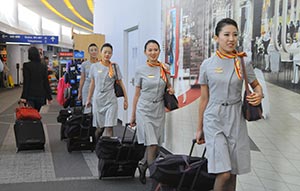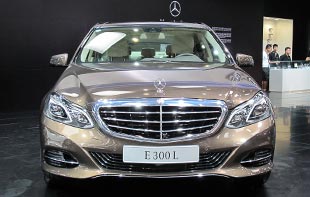

That really depends on the regulators. Chunwan operates under the watchful eyes of virtually everyone, including the nation’s top leaders. Anyone with veto power can essentially remove anything from the program, and maybe to a lesser degree, add things to it. That makes the director (equivalent to the position of the producer in many other countries) a figurehead not of creative control but rather of political navigation. In the end, he or she has to take into account all the constraints and come up with toothless jokes and saccharine lyrics.
If Feng Xiaogang is not given more leeway than his predecessors, there is no reason to believe he can raise it one peg above the others. It’s not like the previous directors of the show did not know a hit from a miss, but they had to abandon biting humor for content they could not say no to. Feng constantly pushes boundaries in his movies, and as he did not ask for this thankless job he is expected to do the same with chunwan.
He is in a better position than most to do that. As he is not a CCTV insider, he may not need to fear offending left and right and wreaking havoc with office politics. And as he has been appointed, he may be able to push through more than someone who volunteered for the job. Sure, constraints will not vanish, but they may well be loosened slightly.
In a sense, Feng will be in a similar position to Zhang Yimou when the latter was given the task of directing the opening ceremony of the 2008 Beijing Olympics. He had access to all the resources in the world. But the most important thing was that the show had a much broader focus than simply touting the nation’s achievements from the past few decades. It was traditional Chinese culture that was the selling point. It had to please a worldwide audience rather than just a few who had a say in decisions.
Likewise, if the retooled chunwan can aim to serve a nationwide audience, it will find solutions to many of the thorniest headaches. For example, humor is often regional. Some of Feng’s earlier comedies were so grounded in Beijing-centric culture that they failed to gain traction as they traveled south. Instead of customizing different versions for different localities, he toned down regional flavors by mixing actors from all over China, including those from Hong Kong and Taiwan, and creating stories with broad resonance.
Feng Xiaogang has publicized his motto for the upcoming show in four words: “Sincerity, warmth, uplift and fun”. It is reported that he will forfeit the style of the last two chunwan outings, which featured high-tech glitz and extravaganza. Feng wants to be homely. He wants to connect with ordinary people. He does not want a stage full of expensive gadgets and effects.
You can say Feng’s approach is a stylistic reflection of the new leadership, with its emphasis on pragmatism and its crackdown on food waste. It is searching for ways to click with the broad masses. Of course, it is impossible to satisfy every taste even if Feng is given all the latitude and he ends up creating a perfect show. Chunwan has grown beyond a television show and become part of a national ritual. As such, it will definitely incorporate elements that under normal circumstances are considered overblown.
As I see it, chunwan at its most pernicious is now a lethally homogenizing force. Almost every variety show across the country, whether a high-profile one in a big city or a wedding reception in the hinterlands, is an attempted imitation of chunwan. Every host speaks with the same mannerisms. The rich diversity of Chinese culture is being pulverized under the weight of this juggernaut. We are in desperate need of something new, and even if Feng Xiaogang achieves a fraction of what he sets out to do, he may show the country that chunwan, the mother of all Chinese galas, can reinvent itself.
 Models at Ford pavilion at Chengdu Motor Show
Models at Ford pavilion at Chengdu Motor Show
 Brilliant future expected for Chinese cinema: interview
Brilliant future expected for Chinese cinema: interview
 Chang'an launches Eado XT at Chengdu Motor Show
Chang'an launches Eado XT at Chengdu Motor Show
 Hainan Airlines makes maiden flight to Chicago
Hainan Airlines makes maiden flight to Chicago
 Highlights of 2013 Chengdu Motor Show
Highlights of 2013 Chengdu Motor Show
 New Mercedes E-Class China debut at Chengdu Motor Show
New Mercedes E-Class China debut at Chengdu Motor Show
 'Jurassic Park 3D' remains atop Chinese box office
'Jurassic Park 3D' remains atop Chinese box office
 Beauty reveals secrets of fashion consultant
Beauty reveals secrets of fashion consultant